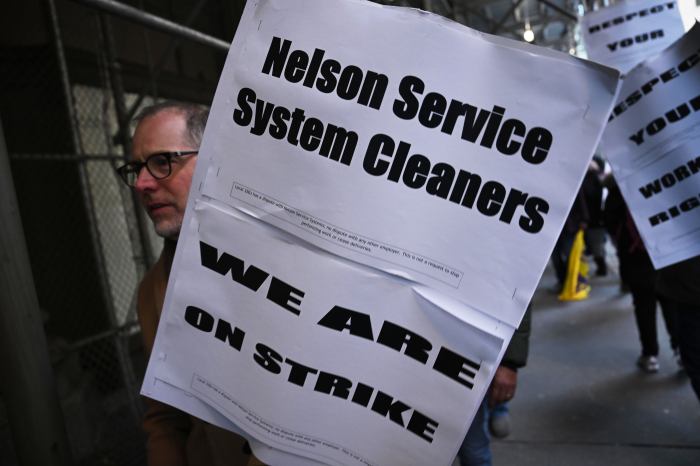“First on gun safety, then on abortion, and now on the environment – this MAGA, repressive, extremist Supreme Court is intent on setting America back decades, if not centuries,” said U.S. Senate Majority Leader Chuck Schumer. “The Republican-appointed majority of the MAGA Court is pushing the country back to a time when robber barons and corporate elites have complete power and average citizens have no say.”
He was speaking after the 6-to-3 ruling of the Supreme Court in the West Virginia v. EPA case that will limit the Environmental Protection Agency’s power to regulate carbon emissions from power plants.
In Suffolk County, Gordian Raacke, executive director of Renewable Energy Long Island, was also justifiably outraged. The ruling “is a serious blow to our fight for a livable climate. It leaves fewer options at the federal government level and shifts more responsibility for climate action to state and local levels,” he said. “We are witnessing an epic battle for survival between fossil fuel interests on one side and the public interest on the other. Unfortunately, the Supreme Court majority has sided with the fossil fuel industry.”
“Now, with little time left to reduce carbon emissions before it is too late to save our climate, we’ll need all hands on deck to accelerate the transition to a carbon-free economy,” said Raacke.
Bob DeLuca, president of the Suffolk-based Group for the East End, said the ruling “over the authority of the EPA to advance a comprehensive strategy for limiting greenhouse gas emissions from power plants flies in the face of sound science and effective environmental policy. The decision essentially ties the EPA’s hands from developing a nationwide regulatory strategy for carbon emissions on a theory that Congress could not have intended to empower the EPA to address matters of substantial national consequence without further action by Congress.”
“By arguing that Congress could have never intended the EPA to actually do its job comprehensively – an odd view given the existence of a national Clean Air Act – the court significantly diminished the authority of the EPA when it comes to one of the most consequential environmental issues of our time,” he said.
“Moreover, by dropping the matter back in the lap of a Congress mired in conflict and endless stalemates over substantive legislation, the court assured its decision would hold indefinitely,” he continued. “These are very smart people and they surely knew what the outcome would be.”
“For those of us in the conservation community and I assume many concerned citizens in general, the weakening of government’s authority to address climate change comprehensively is a blow to important progress that needs to be made immediately, and places substantial new pressure on state and local governments to fill the void,” said DeLuca, who has worked as a biologist and senior environmental analyst with the Suffolk County Office of Ecology.
State Assemblyman Fred W. Thiele Jr. of Sag Harbor said: “At a time when the impacts of climate change are becoming more disruptive and jeopardizing the safety of millions of Americans, this ruling will severely curtail our ability to reduce carbon pollution from power plants and regulate the energy sector. The recklessness of this decision by our nation’s highest court cannot be understated.”
The ruling, issued June 30, the last day of the Supreme Court’s current term, came after weeks of other appalling rulings by its arch-conservative majority.
“The Supreme Court’s Next Target: The Environment,” was the headline of an op-ed piece in The New York Times published seven weeks earlier on June 7. It was written by Sambhav Sankar, a former law clerk for Supreme Court Justice Sandra Day O’Connor and now senior vice president at Earthjustice. He asked why “do the Supreme Court’s conservatives seem to be going so far out of their way to hamstring federal efforts to regulate polluters and slow climate change? The reason is that the court’s five most conservative justices were seemingly selected primarily for their fidelity to an agenda that is so far outside the legal mainstream…”
“This profound disconnect between the will of the people and the court’s deregulatory agenda on the environment could not come at a more dangerous time,” he went on. He observed that the UN’s Intergovernmental Panel on Climate Change, which includes climate change experts from all over the world, “warns that our window to avert irreversible climate harm is closing fast. If the Supreme Court chooses this moment to pursue an agenda of limiting federal regulatory power, it will serve the interests of corporations – particularly fossil fuel companies – while pushing people and the planet closer and closer to the point of no return.”
And, as Sankar predicted, the “next target” was indeed the environment.
Following the issuance of the ruling, a summary of a column in The Times, by Paul Krugman, a Nobel Prize winner, stated: “The Supreme Court does its bit to make the earth unlivable.”
The dissent to the decision, written by Justice Elena Kagan, joined in by Justices Stephen Breyer and Sonia Sotomayor, declared: “Climate change’s causes and dangers are no longer subject to serious doubt,” that “in particular, the emission of greenhouse gases like carbon dioxide” were responsible. “The Earth is now warmer than at any time in the history of modern civilization with the six warmest years on record all occurring in the last decade.” Impacts listed, with sources cited, included: “increases in heating deaths,” “coastal inundation and erosion,” “more frequent and intense hurricanes, floods, and other extreme weather events,” “drought,” “destruction of food production,” and “potentially significant disruptions of food production.”
And of special significance for Fire Island and Long Island, Kagan wrote: “If the current rate of emissions continues, children born this year could live to see parts of the Eastern Seaboard swallowed by the sea.”
She concluded: “Whatever else this Court may know about, it does not have a clue about how to address climate change. And let’s say the obvious: the stakes here are high. Yet the Court today prevents congressionally authorized agency action to curb power plants’ carbon dioxide emissions. The Court appoints itself – instead of Congress or the expert agency – the decision-maker on climate policy. I cannot think of many things more frightening.”





























